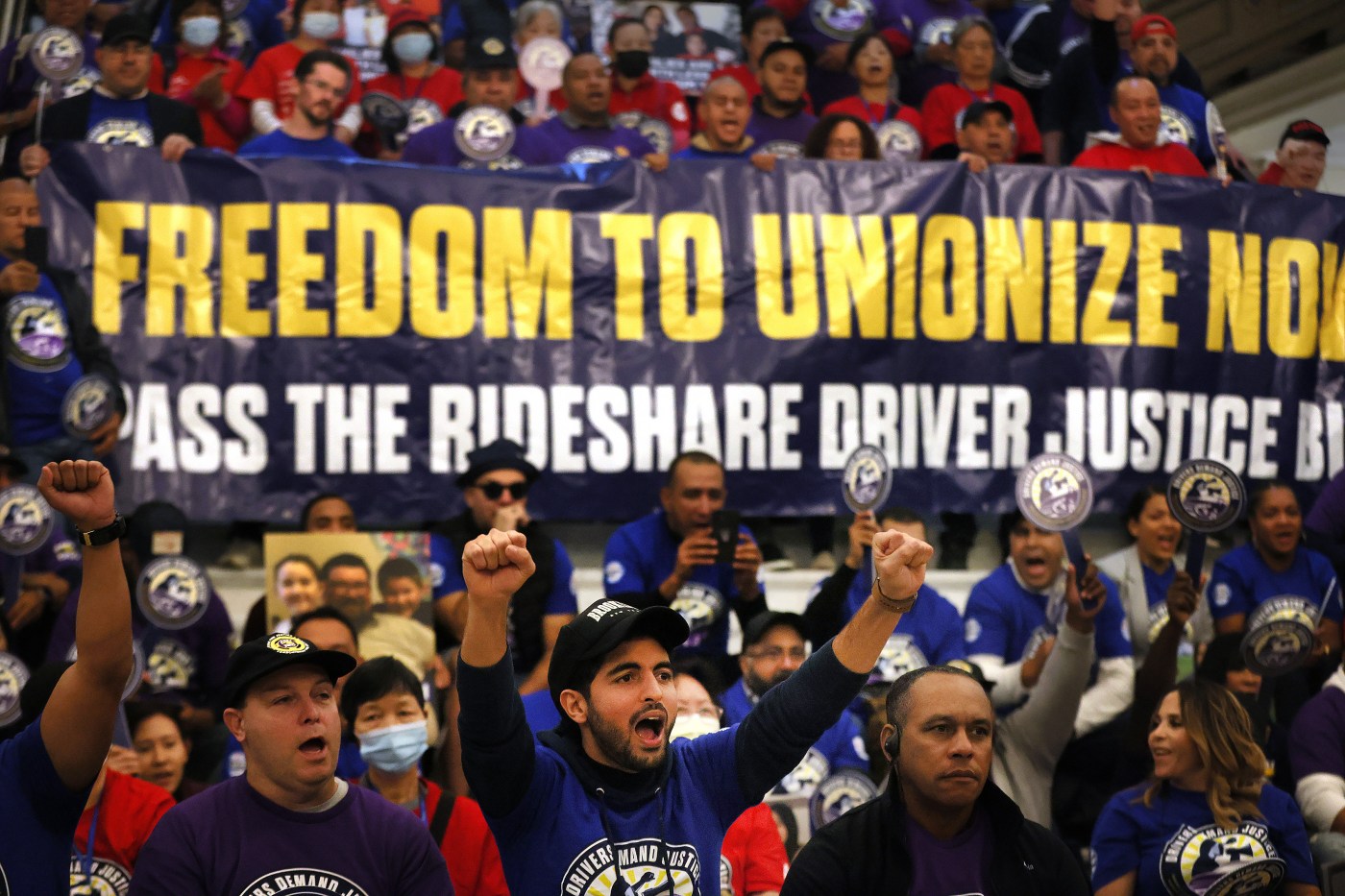
Push to allow app-based workers to unionize met with legal challenge
A move to allow app-based workers to unionize has been met with a legal challenge filed by a Bay State fiscal watch-dog group, who allege the plan is too complex to place before voters in November.
The Fiscal Alliance Foundation, in a complaint filed with the Massachusetts Supreme Judicial Court on Wednesday, argue that ballot question 23, or an “Initiative Petition for an Act Giving Transportation Network Drivers the Option to Form a Union and Bargain Collectively,” is at odds with the “related subjects” requirement for proposed ballot questions prescribed under state law.
“Buried within the Petition’s 8810 words and 32 double-spaced pages lurk a host of disparate policy questions that the proponents have chosen to engraft to the deceptively simple question of whether Drivers should be permitted to organize to establish wages, benefits, and working conditions,” the complaint reads, in part.
According to the Fiscal Alliance, allowing drivers to unionize, letting the state set their wages and fare rates, and establishing rules around unfair labor practices — as the Attorney General’s summary of the petition says the law would do — are unrelated subjects and cannot be part of a single ballot question.
The push to allow drivers to form a union is backed by the group Drivers Demand Justice, who say the current contract-based model for app-based workers leaves them making less than the minimum wage and subject to arbitrary removal from corporate apps based on the whims of the companies who own them.
After gathering enough signatures this last summer to force the issue, drivers’ push toward unionization now rests in the hands of the Legislature. If lawmakers in the Joint Committee on Financial Service sit on the plan or it dies elsewhere, the question of whether drivers can form unions an collectively bargain on behalf of their industry could appear before voters this fall.
That would be a mistake, according to Paul Craney, a spokesperson for the Fiscal Alliance Foundation. Not only does the question work to confuse voters, if made law the results would be more expensive transportation in an already expensive state, Craney said.
“The Fiscal Alliance Foundation strongly feels this is an unconstitutional ballot question that, if allowed onto the ballot, would undoubtedly lead to voter confusion. If allowed to move forward in its current form, this question would eliminate the ability for many independent contractors to be their own boss, raise prices for riders, and would likely result in a lengthy legal battle for years to come due to the proposal’s poorly worded provision that preempts federal and state labor law,” Craney said in a statement.
The group behind the union push say their ability to collectively bargain with their corporate partners is a matter of fairness. Were the Legislature or the voters to pass the proposal they’ve dubbed “The Rideshare Driver Justice Bill,” they say, drivers would be in a position to fight back against “industry greed.”
“The Rideshare Driver Justice Bill is an essential piece of social justice legislation that would benefit thousands of Uber and Lyft drivers across the state who on average, make less than minimum wage and live under the threat of sudden, unjust deactivation,” Roxana Rivera, Assistant to the President of 32BJ SEIU and head of the union in Massachusetts, a founding member of the Drivers Demand Justice Coalition seeking to pass the Rideshare Driver Justice Bill, said in a statement.
According to the Fiscal Alliance Foundation, despite the claims offered by Drivers Demand Justice, most app-based workers like the independence provided by the contract-based model they currently operate under. Additionally, changing the law could make the state a less attractive place to live for independent contractors, Craney said, and Massachusetts can’t afford to scare off workers.
“At a time when our state faces an uncertain economic future, making Massachusetts even more hostile to economic competitiveness is the last thing the state needs right now. People need more flexibility in how they do work, not less. This potential ballot question would make life a lot harder for riders and drivers alike,” Craney said.
The SJC, in 2022, tossed a related initiative petition backed by the app companies that would have prevented drivers from being classified as employees of those companies. The court found that the questions dealt with too many subjects, instead of the single issue required by the “related subjects” rule.

